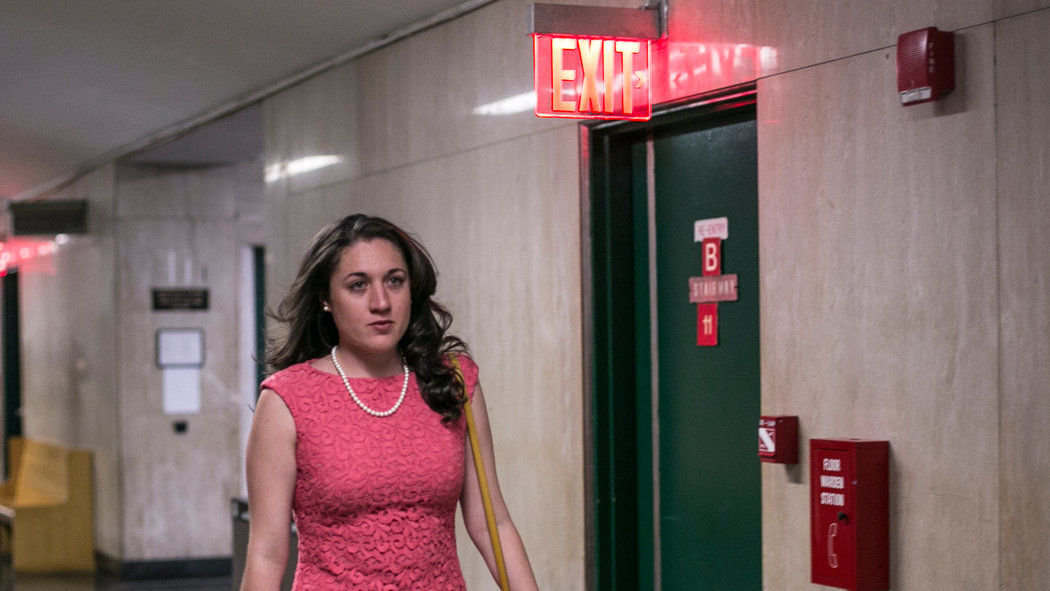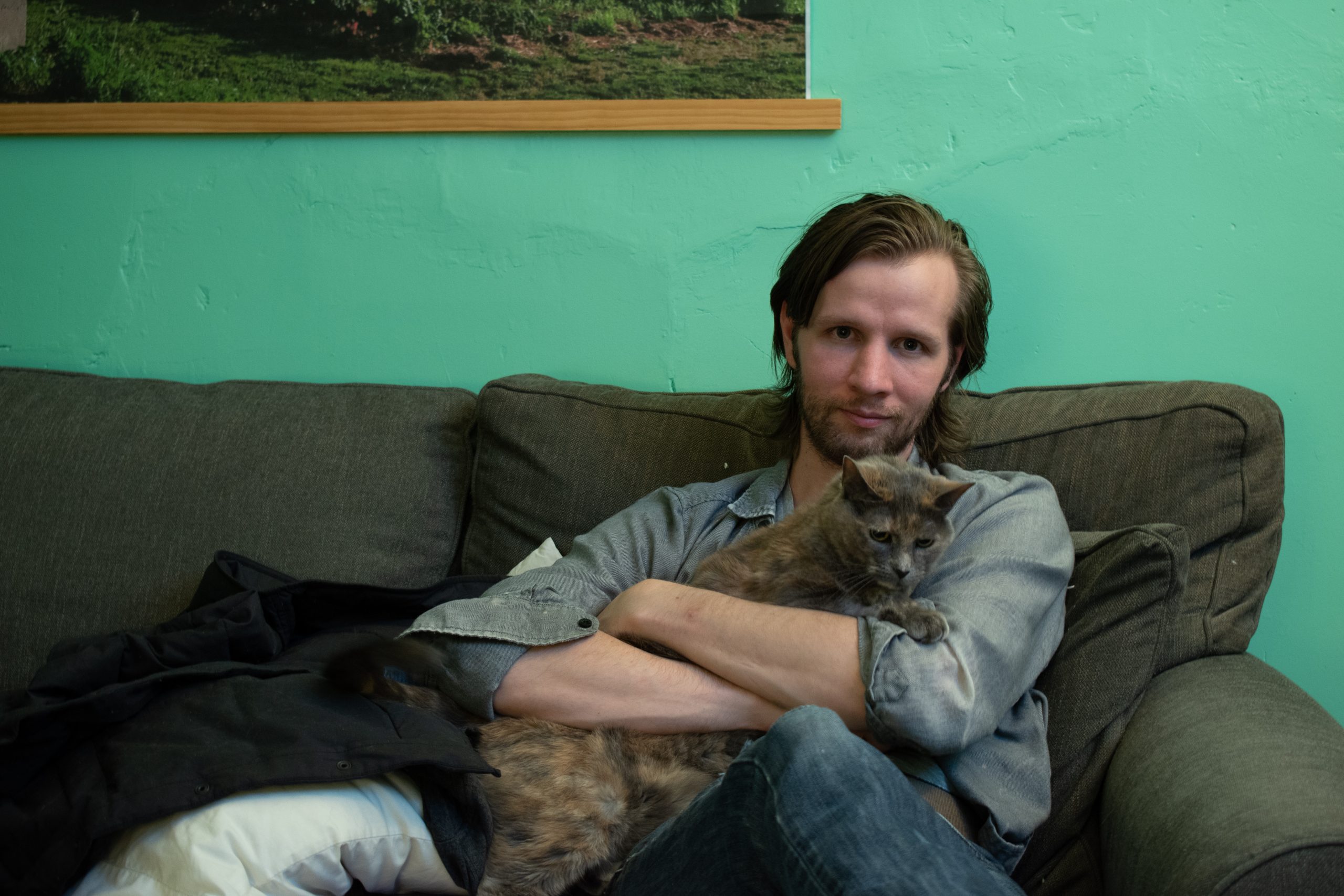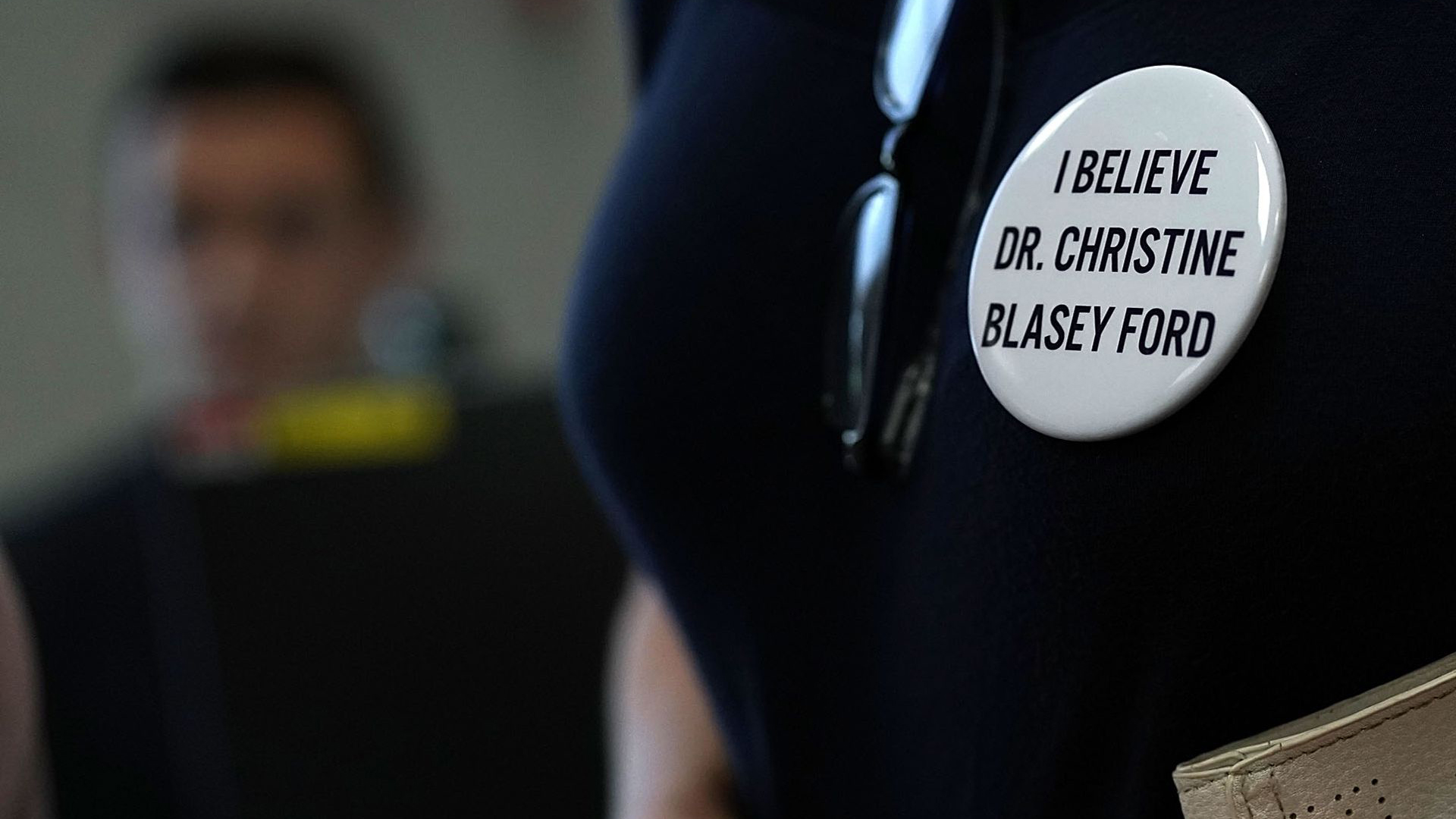[NEW YORK, NY] After years of awaiting trial Cecily McMillan was sentenced this morning to a term of incarceration of 90 days on New York’s Rikers Island and a probationary term of 5 years for allegations that she assaulted NYPD officer Grantley Bovel. Posted below is the official statement of her support team.
Today, Cecily Mcmillan was sentenced to 90 days in prison for being sexually assaulted by a police officer at a protest, and then responding to that violence by defending herself. We all know that Cecily did not receive a fair trial and this case will be fought in the Court of Appeals.
The sentencing of Cecily McMillan has elicited an array of deeply felt responses from a broad range of individuals and communities, and it has also created a moment to think about what solidarity means. For many of us who consider ourselves to be part of the Occupy movement, there’s first and foremost a simple and deep sadness for a member of our community who has endured a painful and demeaning physical and sexual assault, and now has had her freedom taken away from her. And it’s painfully clear to us that Cecily’s case is not special. Sexual violence against women is disturbingly common, and there is a tremendous amount of over-policing and prosecutorial overreach by the police and the courts, enacted predominantly upon black and brown populations every single day, generation after generation.
On a broader level, there’s been a tremendous outpouring of public support in the wake of the verdict, for which Cecily and the team are truly grateful. We’re heartened, too, by the outrage this blatant, heavy-handed attempt to quash dissent has elicited from the public at large. The message this verdict sends is clear: What Cecily continues to endure can happen to any woman who dares to challenge the corporate state, its Wall Street patrons, and their heavy handed enforcers, the NYPD. We certainly think outrage is an appropriate response from economic and social justice activists and allies who are concerned about the silencing of those who push for change. The DA and the courts want to make an example out of Cecily—to deter us, to scare us, to keep us out of the streets. And we won’t let that happen. This ruling will not deter us, it will strengthen our resolve.
At the same time we recognize that outrage is a blunt tool that can too often obscure important distinctions. Cecily’s story represents a confluence of a number of different kinds of structural and institutional oppression that impact different communities in different ways. Expressions of shock at the mistreatment and denial of justice for Cecily—a white-appearing, cisgendered graduate student—only underline how rarely we’re proven wrong in our presumptions that common privileges of race, class and gender-normativity will be fulfilled.
It’s no great secret that police brutality and intimidation and railroading in the court system are an all-too-predictable part of life for many low-income black and brown people, immigrants, and gender nonconforming New Yorkers—the vast majority of whom receive far less than Cecily in the way of legal support and media attention. And while we’re furious that, in the wake of a violent sexual assault, Cecily might now be subject to the institutionalized sexual violence of the prison system, it’s only on top of our horror at the gross injustice that countless people with significantly less recourse experience daily at the hands of that same system.
While we believe Cecily’s story can provide a rallying point around which others may challenge police sexual violence and the brutal suppression of dissent, we recognize that, at best, Cecily is an awkward symbol for the broader issues of police brutality and a broken, biased legal system. This awkwardness is but one example of many awkward scenarios regarding race and privilege that played out in Occupy communities since the original occupation of Zuccotti Park. As a movement, we see in this moment a chance not to push past, but to sit with that awkwardness—to start to reach out in ways that at times may be uncomfortable and to further stretch our boundaries. To learn from communities who’ve been in this struggle long before Occupy existed: From feminist organizations who resist patriarchal domination and combat sexual violence, to anti-racist organizations who, in their struggle for justice, have been met every step of the way by a violent police force and a legal system committed to silencing dissent.
The Occupy Wall Street Movement has been a catalyst for social and economic change. But, while we claim to be “the 99%”, building a movement that truly represents the diversity and strength of the people will require a principled approach in our activism centered around a love ethic. Bell hooks describes the love ethic in All About Love as:
“The will to one’s self for the purpose of nurturing one’s own or another’s spiritual growth. Love is as love does, Love is an act of will—namely, both an intention and an action. Will also implies choice. We do not have to love. We choose to love.”
To build solidarity, it’s not enough to simply be a slogan or a meme—Slavoj Zizek told us during the encampment to “not fall in love with ourselves”. Solidarity means listening and extending ourselves when oppressed communities ask—not to try to lead, but to get our hands dirty and do the work. Building solidarity across the 99% is the only way to effectively fight the 1%, and to create genuine change. Though Zuccotti Park changed us forever, the true work began when we went back out into the world.
Many of us are now are working in communities, figuring out how to most effectively demand justice for the 99%—from copwatch, to tenant councils that combat high rents and poor living conditions, to helping build community gardens. As we continue building support networks in our new communities, for the people who still interact with one another in the movement, we are more than friends now—we are family. We’re connected because we see in each other the strength to overcome struggles we couldn’t possibly win on our own.
A member of our support team went to Rikers Island yesterday to visit Cecily and she spoke of her experiences in prison:
“I am very conscious of how privileged I am, especially in here. When you are in prison white privilege works against you. You tend to react when you come out of white privilege by saying “you can’t do that” when prison authorities force you to do something arbitrary and meaningless. But the poor understand that’s the system. They know it is absurd, capricious and senseless, that it is all about being forced to pay deference to power. If you react out of white privilege it sets you apart. I have learned to respond as a collective, to speak to authority in a unified voice. And this has been good for me. I needed this.”
“We can talk about movement theory all we want,” she went on. “We can read Michel Foucault or Pierre Bourdieu, but at a certain point it becomes a game. You have to get out and live it. You have to actually build a movement. And if we don’t get to work to build a movement now there will be no one studying movement theory in a decade because there will be no movements. I can do this in prison. I can do this out of prison. It is all one struggle.”
As Cecily continues the struggle in prison, we will continue outside. We show that we are a family not just by words, but by our actions. Paulo Freire states in Pedagogy of the Oppressed that praxis is the “reflection and action upon the world in order to transform it. Through praxis, oppressed people can acquire a critical awareness of their own condition, and, with their allies, struggle for liberation.”
Through praxis, we learn again and again that all of our grievances are connected. Our struggles are not the same. But our fates are tied up in each others. Solidarity is the only way we’ll see our way through.
To stay involved and help Cecily while she is in prison, please go to www.justiceforcecily.com for more details.




